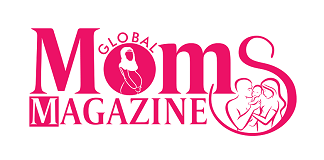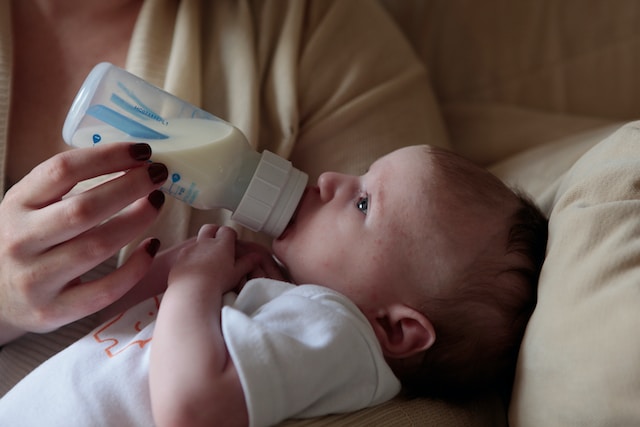In our endless quest for health and wellness, adults often try a multitude of diets and supplements.
A recent fad has been to drink baby formula as an adult nutritional supplement. After all, with so many nutrients, how could it be ignored?
But can adults drink baby formula? Yes, adults can drink baby formula. However, the actual benefits from consuming baby formula as an adult are minimal and overconsumption can lead to health issues and can hurt your wallet in the process.
Let’s explore whether adults can drink baby formula, the reasons and benefits of doing so as well as possible alternatives.
Can Adults Drink Baby Formula?
Yes, adults can drink baby formula. However, the benefits they will gain from consuming it are minimal.
Baby formula is produced to closely resemble the nutritional nature of breastmilk. Because it is designed to meet infants’ special dietary needs, it is not optimal for adults’ nutritional requirements.
Although created specifically for newborns, baby milk is highly unlikely to cause any adverse effects in adults who consume it.
Nutritional Information
Newborns grow quickly in a short period of time. Baby formula is fortified with minerals, vitamins, protein, and fats to help in their proper development.
Healthy fats are important in supporting babies’ rapid brain and nervous system development. According to the American Academy of Pediatrics (AAP), babies should receive 50% of their daily caloric intake from fats.
Fats are so important for a baby’s proper development that about half of the calories in baby formula come from its fat content.
Protein is important in helping babies build muscle and tissues. On average, baby formula has approximately 2.5 grams per 100 milliliters and about 3 grams per 100 milliliters for premature or underweight babies.
Baby formula’s caloric content is similar to that of breastmilk, about 20 calories per fluid ounce. For comparison, cow’s milk has about 17 per fluid ounce. Babies younger than 6 months of age require about 30-50 calories per pound per day. So, a 12-pound baby needs roughly 420-600 calories per day.
Human Milk Oligosaccharides (HMOs) are special bioactive carbohydrates naturally found in breast milk that help fortify babies’ immune systems and gut microbial flora. HMOs can be produced and added to baby formulas.
Most baby formulas are fortified with iron, an important nutrient in building blood cells and brain development.
Minerals, such as calcium and zinc, as well as vitamins, including A, C, D, E, and B vitamins are also found in baby formula.
What Happens If Adults Drink Baby Formula?
Baby formula is not harmful to adults in itself.
However, because baby formula is designed for newborn’s nutritional needs, it is not optimal for adults. To reap the benefits of baby formula, adults would have to ingest large amounts of it, which isn’t cheap and might be in short supply for families who truly need it.
Consuming a lot of baby formula can lead to high cholesterol due to its high-fat content, which can lead to cardiovascular disease.
Individuals trying to lose weight might instead gain weight. Additionally, eating high-fat foods in conjunction with baby formula might lead to faster weight gain.
A 132-pound adult would have to consume ½ gallon of baby formula just to reach their protein Daily Reference Intake (DRI). Therefore, someone trying to use baby formula to build muscle might have to consume even greater amounts of it to reap any benefits.
Individuals with protein allergies and sensitivities might experience adverse reactions to baby formula, especially when consuming large amounts.
Furthermore, there is the risk of experiencing an iron overdose if you consume too much baby formula or try to live solely from it. While iron is an essential nutrient, too much can cause iron poisoning, causing stomach pain, vomiting, diarrhea, constipation, and potentially brain damage.
Individuals trying to survive solely on baby formula to lose or maintain their weight may not have enough energy to go through their day. Consuming only baby formula can be similar to going on a juice fast or cleanse. Therefore, adults may experience weakness and lightheadedness within a few hours or days.
Reasons Adults Drink Baby Formula
While some adults may consume baby formula solely for its sweet taste, because they have some leftover, or because they’ve run out of milk or creamer, others consume it in hopes of gaining health benefits.
Since baby formula is full of nutrients, many adults think they can consume it to build muscle and gain, lose, or maintain their desired weight.
Seniors experiencing nutritional deficiencies may consider consuming baby formula thinking it is a suitable supplement.
Promising studies have linked HMOs as a potential treatment for obesity, autism, cardiovascular disease, arthritis, and Crohn’s disease in adults leading many to self-medicate with baby formula.
However, this is a relatively new field, and treatment with baby formula or HMOs for such diseases is not approved by the United States Food and Drug Administration (US FDA).
For those suffering from such conditions, it is best to consult and follow their doctor’s instructions.
Benefits for Adults Drinking Baby Formula
The main benefit experienced from drinking baby formula is reducing waste. If your child is no longer drinking baby formula and you have some leftover, instead of throwing it out, you can enjoy it yourself.
The sweet taste alone can be beneficial enough. Enjoy it with your cereal or coffee.
To reap any nutritional benefits, one would have to consume large and expensive amounts of baby formula daily, rendering it unsustainable.
Additionally, although the baby formula shortage is not what it was in 2022, many families still struggle to find affordable baby formula.
Infants who truly need it may be deprived of valuable nutrition by adults consuming large quantities of baby formula, even if it is affordable.
Alternatives to Baby Formula for Adults
Instead of trying to consume baby formula to improve your nutrition or build muscle, you can try one of the many nutritional drinks especially formulated for adults.
Nutritional drinks, like Ensure, Boost, and Soylent can be excellent for individuals with nutrient deficiencies as well as those who struggle to eat, such as seniors. A typical 8-ounce adult nutritional drink has up to 400 calories versus baby formula, which has approximately 160 calories.
Standard adult protein powders are an effective way to lose weight and build muscle since they have approximately 25-30 grams of whey protein per scoop.
Another benefit of adult supplements is the variety of flavors to choose from. Vanilla, chocolate, and fruit flavors are great alternatives to baby formula.
Can Toddlers Drink Infant Formula?
A toddler’s nutritional needs are different from an infant’s. According to the Centers for Disease Control (CDC), “children [can] be introduced to foods other than breast milk or infant formula when they are about 6 months old.”
They can also start drinking pasteurized, whole cow’s milk and vitamin D-fortified soy beverages at 12 months old and not before.
Eating solid food in combination with cow’s milk provides growing toddlers with the proper nutrition that infant formula can no longer provide.
FAQs
Can adults drink baby formula to gain weight?
Adults can drink baby formula to gain weight. However, they will need to consume large amounts of it, which is not sustainable due to the cost and volume required.
Additionally, the fat content in baby formula can increase cholesterol levels, resulting in cardiovascular disease.
Can adults drink baby formula to lose weight?
Drinking baby formula to lose weight will not help adults. While they may lose weight if they subsist solely on baby formula, they will become nutritionally deficient, unless they consume large amounts, which is not economically sustainable.
Additionally, drinking only baby formula is similar to going on a juice cleanse. Surviving only on baby formula can lead to weakness and lightheadedness.
Can adults drink expired baby formula?
It is best not to risk drinking expired baby formula at any age, especially if you are immunocompromised. Baby formula is not created to last forever and its nutrients break down over time, rendering it nutritionally deficient.
Additionally, bacteria and mold can grow in it over time, which could be harmful to individuals with weakened immune systems.
The Takeaway
Although it has become common for adults to drink baby formula in hopes of gaining health and wellness, the benefits of consuming the pricy infant product are minimal.
Can adults drink baby formula in hopes of gaining nutritional benefits? Yes, adults can safely drink baby formula; however, baby formula is optimized for newborns’ nutritional needs, not adults’.
Adults and seniors searching for nutritional and health benefits will benefit more from adult dietary supplements and protein powders than baby formula.

